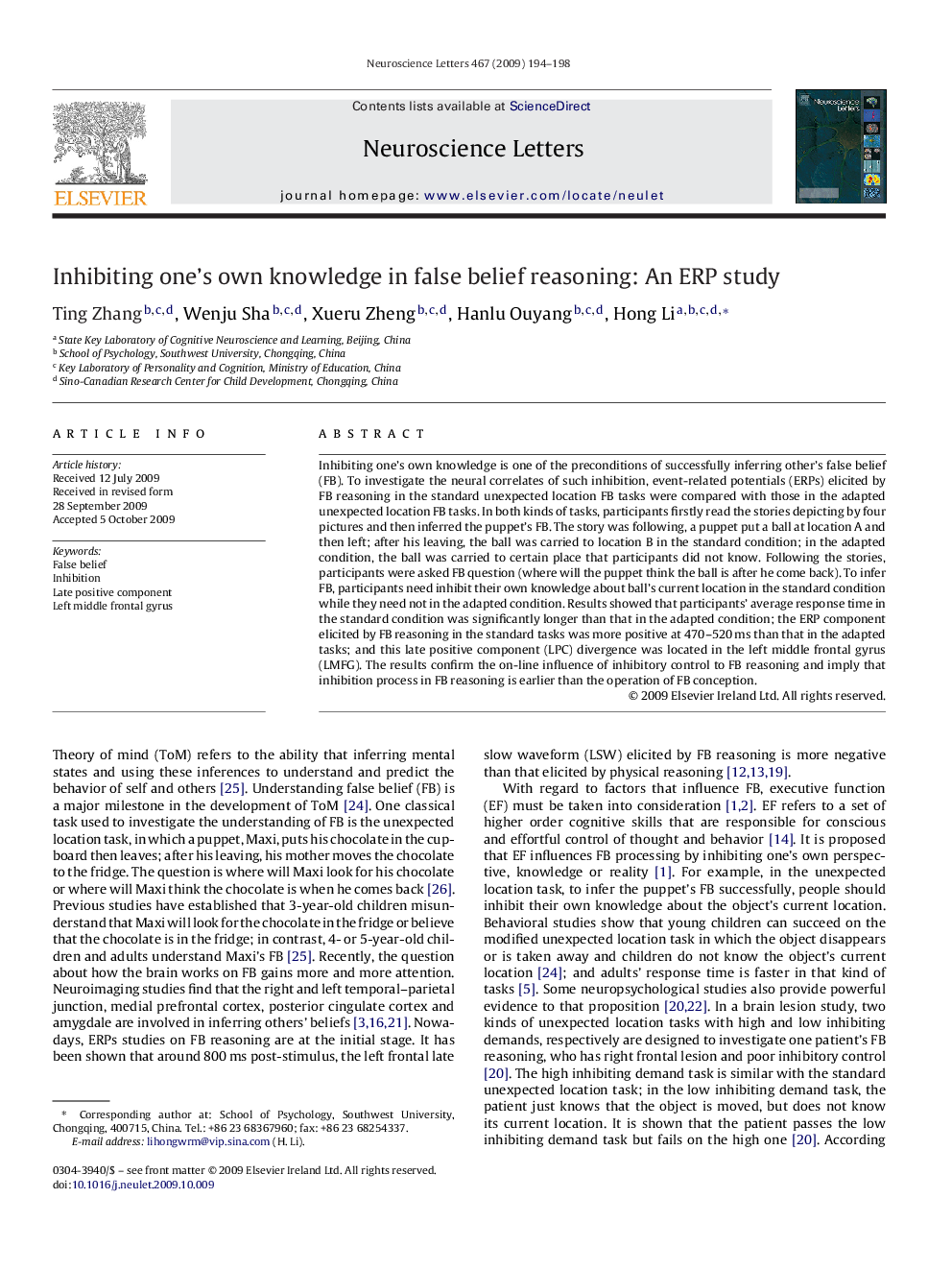| Article ID | Journal | Published Year | Pages | File Type |
|---|---|---|---|---|
| 4346478 | Neuroscience Letters | 2009 | 5 Pages |
Inhibiting one's own knowledge is one of the preconditions of successfully inferring other's false belief (FB). To investigate the neural correlates of such inhibition, event-related potentials (ERPs) elicited by FB reasoning in the standard unexpected location FB tasks were compared with those in the adapted unexpected location FB tasks. In both kinds of tasks, participants firstly read the stories depicting by four pictures and then inferred the puppet's FB. The story was following, a puppet put a ball at location A and then left; after his leaving, the ball was carried to location B in the standard condition; in the adapted condition, the ball was carried to certain place that participants did not know. Following the stories, participants were asked FB question (where will the puppet think the ball is after he come back). To infer FB, participants need inhibit their own knowledge about ball's current location in the standard condition while they need not in the adapted condition. Results showed that participants’ average response time in the standard condition was significantly longer than that in the adapted condition; the ERP component elicited by FB reasoning in the standard tasks was more positive at 470–520 ms than that in the adapted tasks; and this late positive component (LPC) divergence was located in the left middle frontal gyrus (LMFG). The results confirm the on-line influence of inhibitory control to FB reasoning and imply that inhibition process in FB reasoning is earlier than the operation of FB conception.
